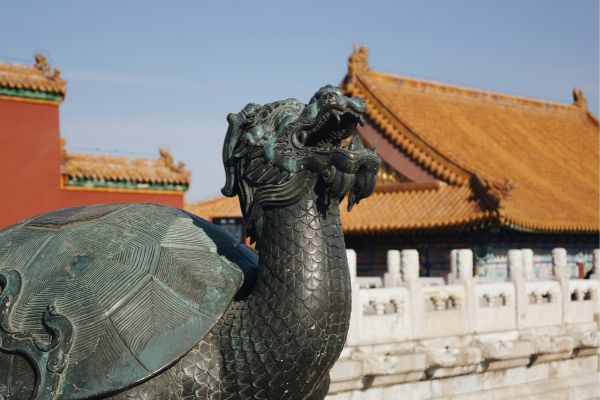
In November 2018, a Chinese scientist, He Jiankui, claimed that he used gene-editing tools to make two twin baby girls, known as "Lulu" and "Nana". The event has caused widespread questioning and discussion at home and abroad.
We are very concerned about the legal consequences of such science and technology. To this end, we have collected Chinese courts' opinions on certain cases involving human assisted reproduction. We will also continue to keep an eye on Chinese courts' latest cases of technologies such as gene editing.
1. A medical institution was subject to administrative punishment for using human assisted reproduction without approval (2017)
Tianqiao District Health and Family Planning Bureau (Tianqiao Health Bureau) of Jinan Municipality received a report that Jinan Modern Kangqiao Hospital (Kangqiao Hospital) extracted sperm and eggs. After investigating the Kangqiao Hospital, the Tianqiao Health Bureau found that the hospital had carried out human assisted reproductive technology without approval, and hence imposed a fine on it and revoked its qualification for gynaecological diagnosis and treatment. The Kangqiao Hospital refused to accept the decision on administrative punishment and filed an administrative lawsuit with the court.
In the second instance, Jinan Intermediate People's Court indicated that the implementation of human assisted reproduction (including artificial insemination, in vitro fertilization-embryo transfer technology and its derivatives) by medical institutions should be examined and approved by the Ministry of Health. The court found that it was illegal for the Kangqiao Hospital to implement human assisted reproductive technology without approval, so it should be subject to administrative punishment according to law.
See: Administrative Judgment "(2017) Lu 01 Xing Zhong No.358" ((2017)鲁01行终358号) for the Second Instance of Tianqiao District Health and Family Planning Bureau of Jinan Municipality v. Jinan Modern Kangqiao Hospital
2. After a couple's death, their frozen fertilized embryos could be kept and disposed of by their parents (2014)
When "in vitro fertilization-embryo transfer assisted surgery" was performed on Shen Jie and Liu Xi (the couple) in the Nanjing Drum Tower Hospital (Drum Tower Hospital), several frozen fertilized embryos formed. Shortly thereafter, the couple died in a car accident. Parents of both spouses required to obtain supervision and disposition of the embryos so that they could commission a third person to give birth to the embryos. The Drum Tower Hospital believed that embryos could not be bought, sold, donated, or used in surrogacy under the government's regulations.
The trial court held that unlike other properties, the fertilized embryo had the potential to develop into life and therefore could not be inherited by parents of the couple as inheritors.
In the second instance, Wuxi Intermediate People's Court held that after the couple's accidental death, their parents were not only the only subject in the world concerned with the fate of the embryos, but also enjoyers of the nearest, largest and closest interests of the embryos. The court therefore supported the right of the couple's parents to supervise and dispose of embryos.
See: Civil Judgment "(2014) Xi Min Zhong Zi No.01235" ((2014)锡民终字第01235号) for the Second Instance of Shen Xinnan, Shao Yumei v. Liu Jinfa, Hu Xingxian
Follow-up story: The parents of the couple commissioned a Lao surrogate woman in Laos to conceive an embryo and gave birth to a baby girl on 9 December 2017.
3. When a woman concealed the fact that she secretly gave birth to a "test-tube baby" from a man, the man did not have to bear the legal responsibility as a father (2014)
Ms. Wang and Mr. Zhang separated after giving birth to two girls through in vitro fertilization (IVF) during their cohabitation. Without Zhang's knowledge, Wang used a fertilized gamete she previously obtained to give birth to a baby boy by a third party. Zhang believed that although the baby boy was genetically his son, he was born without his consent. Therefore, Zhang believed that he was not obliged to raise the baby boy.
Shenzhen Intermediate People's Court held that no one could be forced to become a father. Zhang has the right to decide whether to give birth to his children. The birth of baby boy has not been approved by Zhang, so Zhang's identity is similar to that of a donor who does not have any rights to the baby boy and does not assume any obligations.
See: The Case of Wang ×× v. Zhang ×× for Dispute over Reproductive Options
4. The hospital assumed the responsibility for breach of contract due to arbitrarily changing the program of human assisted reproductive technology (2003)
Zheng Xuefeng and Chen Guoqing (the couple) signed an agreement with Jiangsu Province Hospital (Jiangsu Hospital), to implement human assisted reproduction through "intracytoplasmic sperm injection" (ICSI), but the Jiangsu Hospital adopted "In vitro fertilization and embryo transfer" (IVF-ET), which led to surgical failure. Therefore, the couple asked the Jiangsu Hospital to bear the responsibility for breach of contract.
Nanjing Intermediate People's Court held in the second instance that the hospital was obliged to explain the medical program to the patient, and the patient had the right to choose the medical program by himself/herself. In the absence of an emergency, the Jiangsu Hospital arbitrarily changed the program, which constituted a breach of contract, and thus shall bear the responsibility for breach of contract.
See: The Case of Zheng Xuefeng and Chen Guoqing v. Jiangsu Province Hospital for Dispute over Medical Service Contract.
Contributors: Guodong Du 杜国栋 , Meng Yu 余萌









